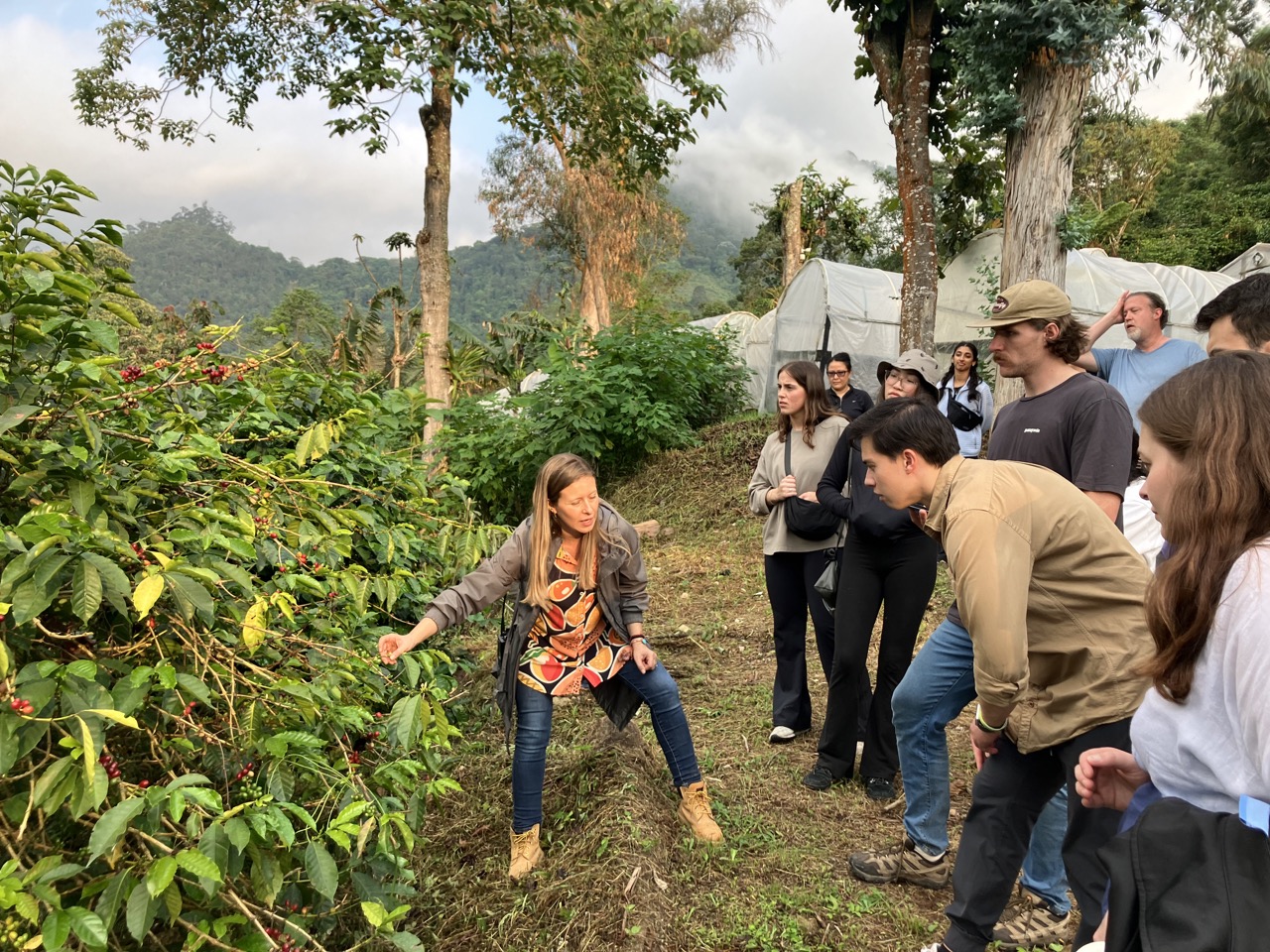During the Winter Break, several Korbel School of International Studies master’s students traveled to Colombia for an interterm course to learn about the country’s path to peace and various environmental initiatives. The students arrived in Bogotá on Nov. 30 and quickly began meeting prominent Colombian scholars as they toured popular monuments around the city.
The trip was led by Professor Oliver Kaplan and accompanied by Professor Kevin Archer. The professors wanted to give the students a deeper understanding of contemporary problems in Colombia.
The students, who all shared an interest in international affairs, bonded as they navigated the busy streets of Bogota with Pedro Valenzuela, an emeritus professor of Political Science at the Universidad Pontificia Javeriana in Bogotá.
Colombia has been a theater of armed conflict since before 1958. Non-state paramilitary and guerrilla groups like FARC and ELN have been some of the most prominent perpetrators of the violence. Over 221,000 civilians have died since 1958, according to the Observatory of Memory and Conflict in Colombia.
The students learned about the strategies leaders around the country use to strive toward a stable and lasting peace. During a visit to the University of the Andes in Bogota, the students attended a panel featuring the minister of defense and various civil society leaders.
“My favorite part [about the panel] was hearing from local Indigenous leaders and civil society leaders that are really facing this work on the ground and doing the best in their communities to really mitigate some of the political violence and really drive their communities forward,” Victoria Torres said, a second-year master’s student at Korbel.
During the latter part of the trip, the students traveled west to a region famous for its coffee cultivation, Zipacón. There, the students toured a local coffee farm and learned about sustainability and climate change in the region.
Carrying out a qualitative study of coffee farms in the region was another crucial objective of the trip. Before the study, the students learned about how to conduct research with human subjects.

“The biggest observation that we made is how the rising temperatures in the region have been affecting these communities that are so heavily reliant on agriculture and crops and how they have become more and more vulnerable,” Helen Lee said, who participates in the international security MA program at Korbel.
Kaplan has conducted field research in Colombia for over a decade and travels there often for research and academic engagements.
Ryan Mazzola, a first-year master’s student, expressed gratitude to Professor Kaplan for connecting the group with defense ministers, senators, pollsters, local activist groups, NGOs and ex-combatants to gain a first-hand understanding of Colombia’s complex peace process.
“To me it’s been remarkable; every day has been a new experience, and I’ve been learning so much about the world that I didn’t know. It’s offering me tremendous perspective for how I want to carry myself forward and is going to be a strong reference point for how I orient myself toward my career,” Mazzola said.











